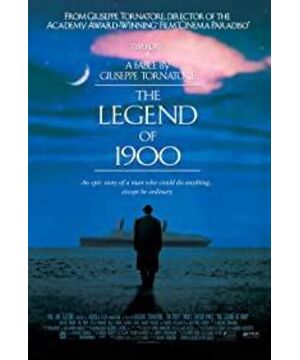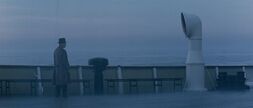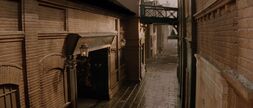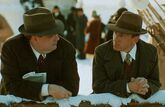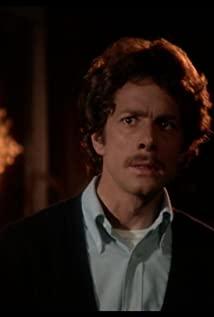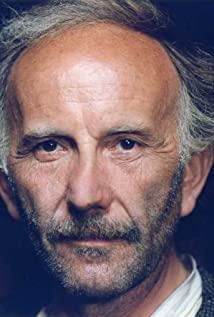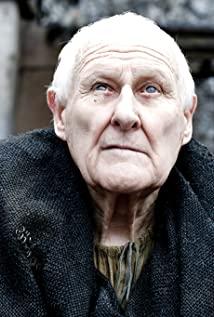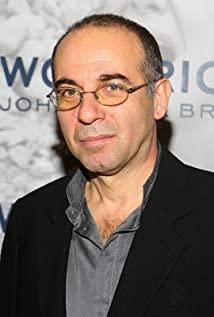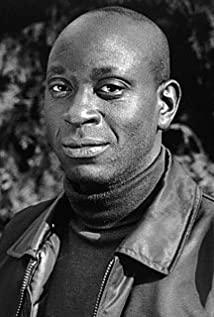When loving life and disgusting life become one thing
——"The Pianist at Sea" and the Evil Infinity of Life
text = empty language
"I thought I was always learning how to live, but I just learned how to die." - Leonardo da Vinci
"There is only one heroism in the world: to see the world as it is and to love it." -Romain Rolland
For those who love life, the first sentence seems unreasonable, and the second sentence makes people feel good about themselves-to be praised for heroism without sacrificing interests, which is really great! Why love life? Because it feels good to be alive—although there may be bad feelings, it’s also good to expect good feelings. Thus, the love of life has become the most widespread and intense "cult of fanaticism" in the world.
"The Pianist at Sea" ("The Legend of 1900") is in a sense an anti-life story, or a story of seeing the world clearly, if you please. 1900 at the end of the story expresses the true face of the living world. Perhaps for many, this story will make a firmer commitment to loneliness. However, I think it would be more appropriate to interpret the story in the words of Leonardo da Vinci. It speaks of the meaninglessness of life, the emptiness of the world. Of course, it is understandable to use the words of Romain Rolland to transform this true face into the heroism of living people. After all, even if it is meaningless, it can only be conveyed in the living world. Those two sentences can actually be seen as expressions of one meaning at different stages: Romain Rolland's words were addressed to the young and middle-aged, while Leonardo's words were addressed to the elderly.
As for the true face of the living world expressed by the pianist at sea, he said this: all those cities, there is no end in sight. It wasn't what I saw that stopped me, it was what I didn't see. The sprawling city is full of everything except the end. Not over. I can't see where this whole mess has an end. the end of the world. For example, the piano, the key to start, the key to finish. There are 88 keys there, that's for sure. They are not infinite, but man is infinite. In the keyboard world, there is no limit to the music that people can play. I like that, it's a life I can live with. You pushed me up the landing ladder and unfolded in front of me a huge keyboard of keys with innumerable keys, unfinished, that's the fact. The keyboard is endless, and if the keys are endless, then one cannot play harmonious music. That's God's piano! ...did you see that street? There are thousands of streets alone. What are you doing there? How do you just pick out the only one? The only woman, the only house, the only piece of land that belongs to you, the only scenery? The only way to die...you can only play your own fun on the piano that isn't endless. This is my way of living. land? For me, the land is just too big a ship, more than I can handle. It's like a woman too beautiful; a voyage too long; a perfume too strong. That's a melody I don't know how to create. I will never leave this ship. All I can do is walk away from life. After all, I have never existed for anyone.
What this passage actually conveys is the "evil infinity" of the living world. Hegel's philosophy believes that people's thinking is often captured by the infinity of evil. The so-called evil infinity refers to the monotonically extending or continuously expanding infinity. This is how straight lines are conceived in geometry, where points are copied monotonically and then become straight lines that can extend indefinitely without boundaries. Life is just as described in 1900, life is constantly producing and spreading, streets are being stretched and replicated, cities are being expanded and replicated; capitalist factories are constantly mass-producing goods, then destroying, and then continuing to reproduce again. ... They are like viruses, constantly pursuing, constantly satisfying, and constantly pursuing, as if they are never ending; even if they hit a wall and are reduced, the remaining ones are still trying to replicate themselves, and then start a new round of replication and expansion.
"The Pianist at Sea" is regarded as an "anti-war movie", and it should not only be said in 1900: go to its war. The root of people's wars is also the evil infinity of the living world. The endless expansion of evil leads to war. The capitalist countries in Europe want to replicate the capitalist mode of production in all countries in the world; some nations want to keep replicating their own nation, and then suppress or even destroy other nations. The desire to copy", will fight back, will degrade other peoples, and then expand themselves. Replication is not only in the physical and biological sense, but also in the cultural sense. People will argue about different opinions, some people will want others to copy their opinions, as if their opinions are infinite. This is all out of the most primitive desire.
Some viewers are likely to think that the reason why Sea Pianist 1900 did not choose to disembark and live like a "normal person" on land was because he was very cowardly. Of course, it's perfectly okay to feel that way, and you can even feel that the 1900's values are really distorted, as long as you like to think so, perhaps because you want to "love life." As Romain Rolland said, the "heroism" of survival should continue to love life after seeing the world clearly. But what is the meaning of loving life? Is it to be submerged in evil infinity to fantasize?
After "God is dead", "philosophy is dead", and "science" has taken over the living world, what meaning can we see from it? Unfortunately, science also conveys the evil infinity of existence. Humans are machines, or even just containers, while the reality is genes and memes. They are reproduced through human desires, with the help of "love of life". No matter how noble a meaning an individual creates for himself, he will eventually be submerged in this replicated evil infinity. People cannot escape.
Do you need to believe this? Probably not, and certainly not even necessary. Because you're still a "generation-throwing" vehicle, you need to fight for your life, you need to love life, you need to believe that life has meaning - that is, copying yourself in a biological or cultural sense, or helping others to copy themselves (this is often praised Heroism) - You can award yourself a "Heroism" medal if you like. You still have to firmly believe that you are learning how to survive until death takes you, and death will be your final lesson.
Compared with the evil infinity of life, the pianist at sea 1900 lived in "true infinity" all his life, just as he stated at the end. It is difficult for him to let go of this subjective sense of freedom, just as those who love life often succumb to the desire for survival. 1900 should not be praised by people who love life, but it should not be belittled. Evil infinity is not to be praised, but the true face of that life is still at work. It's just that "heroism" doesn't make you any more meaningful when you get to the point where it's so damn small. Existence will eventually be submerged in evil infinity.
View more about The Legend of 1900 reviews


